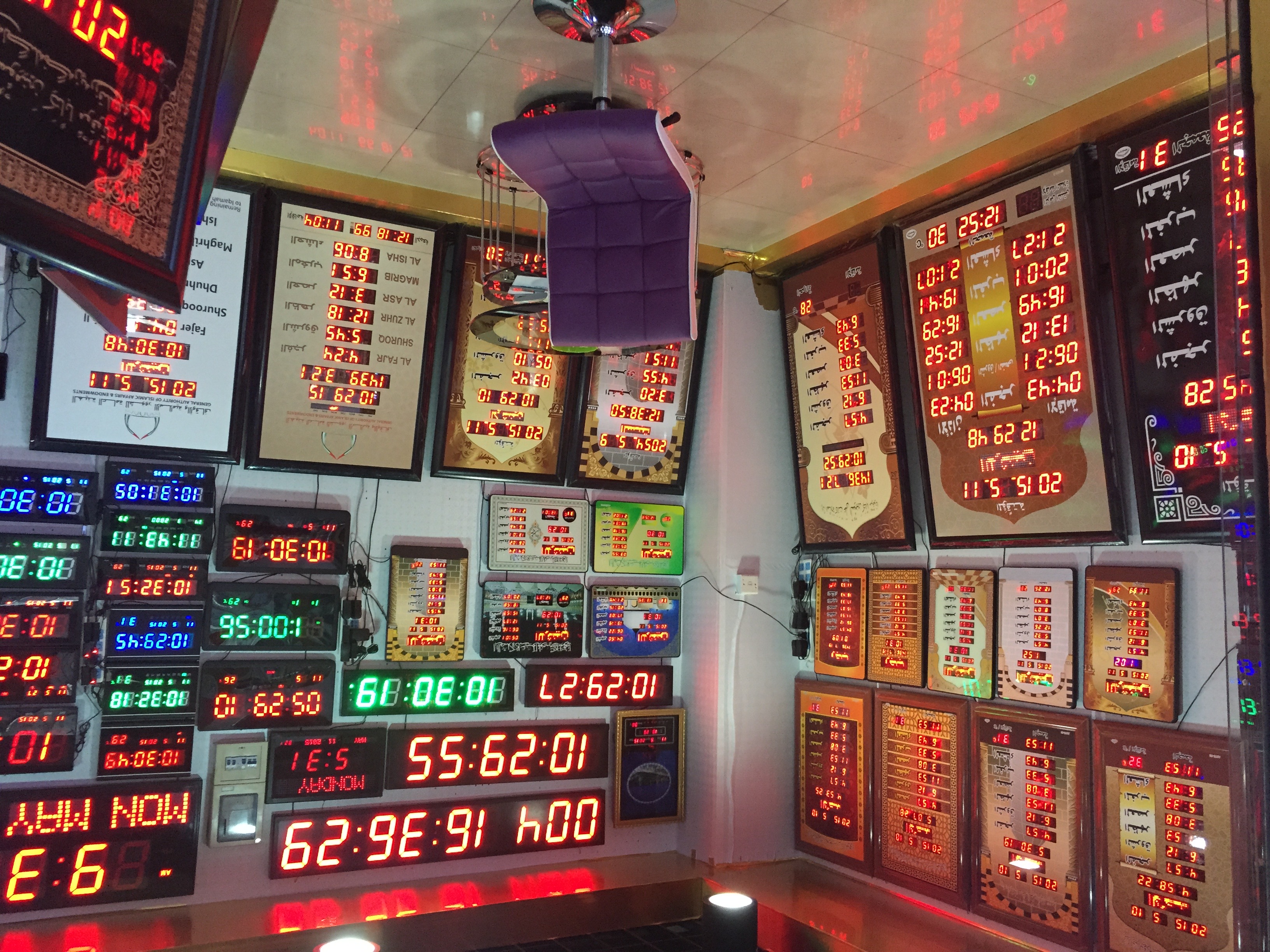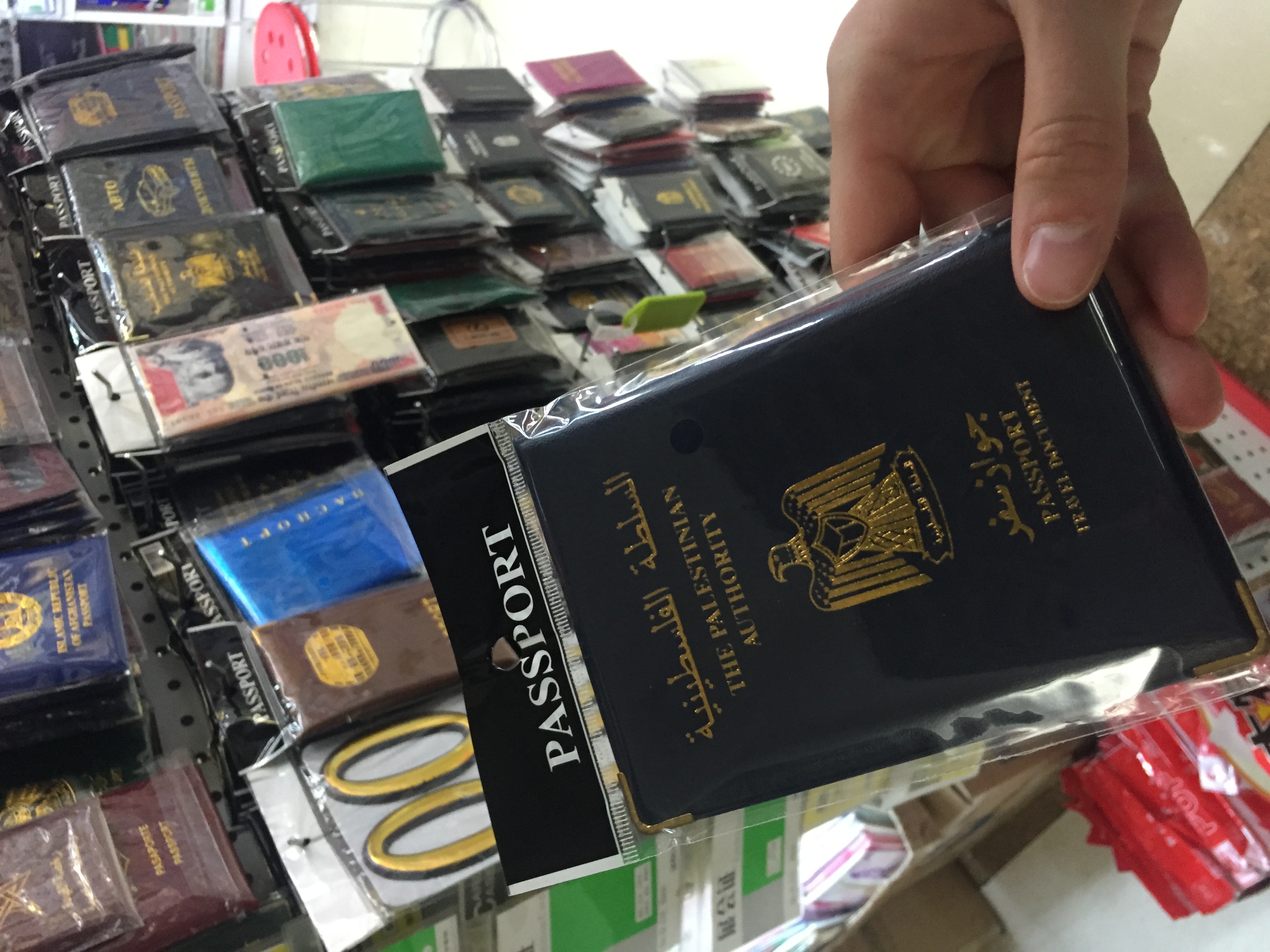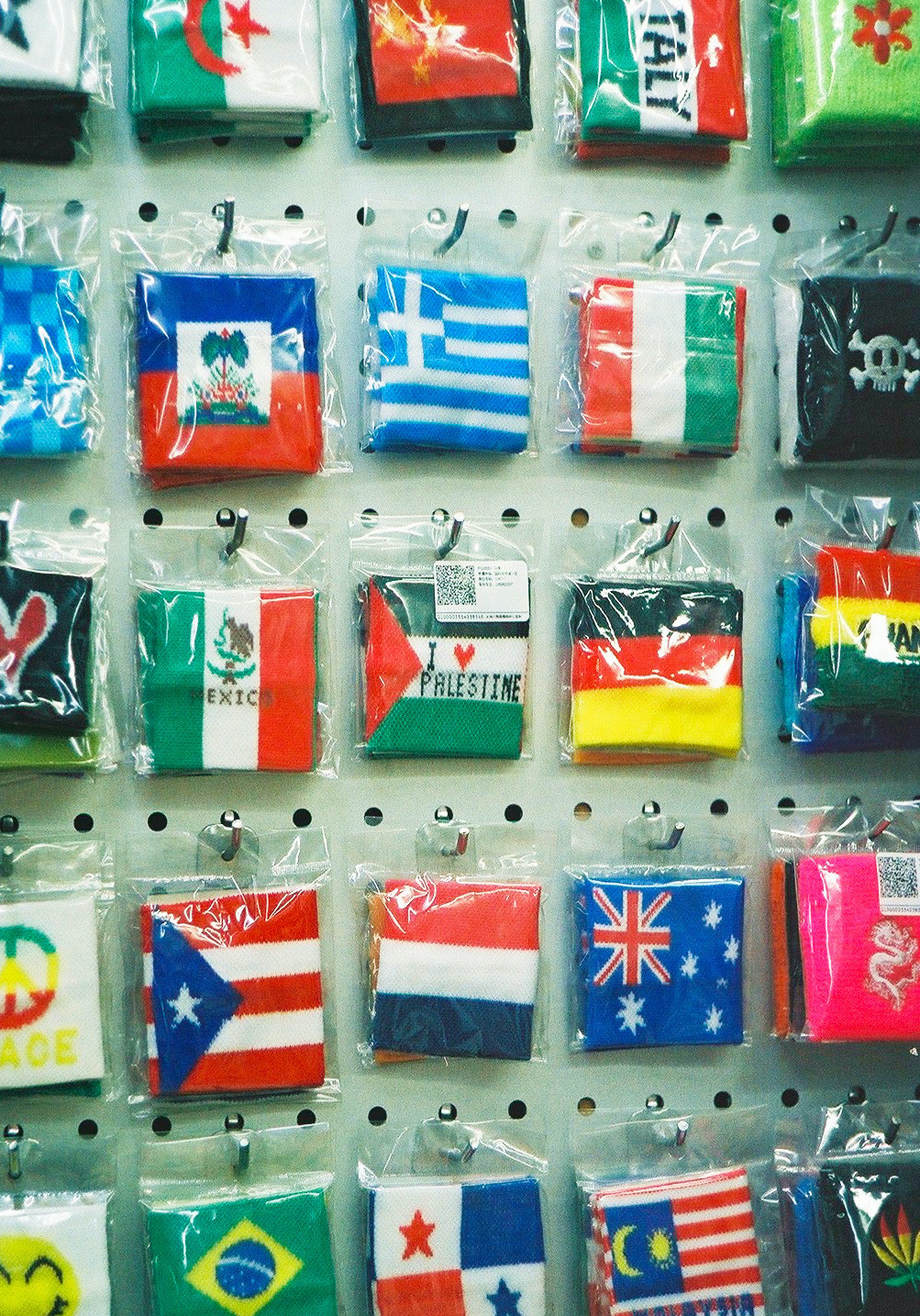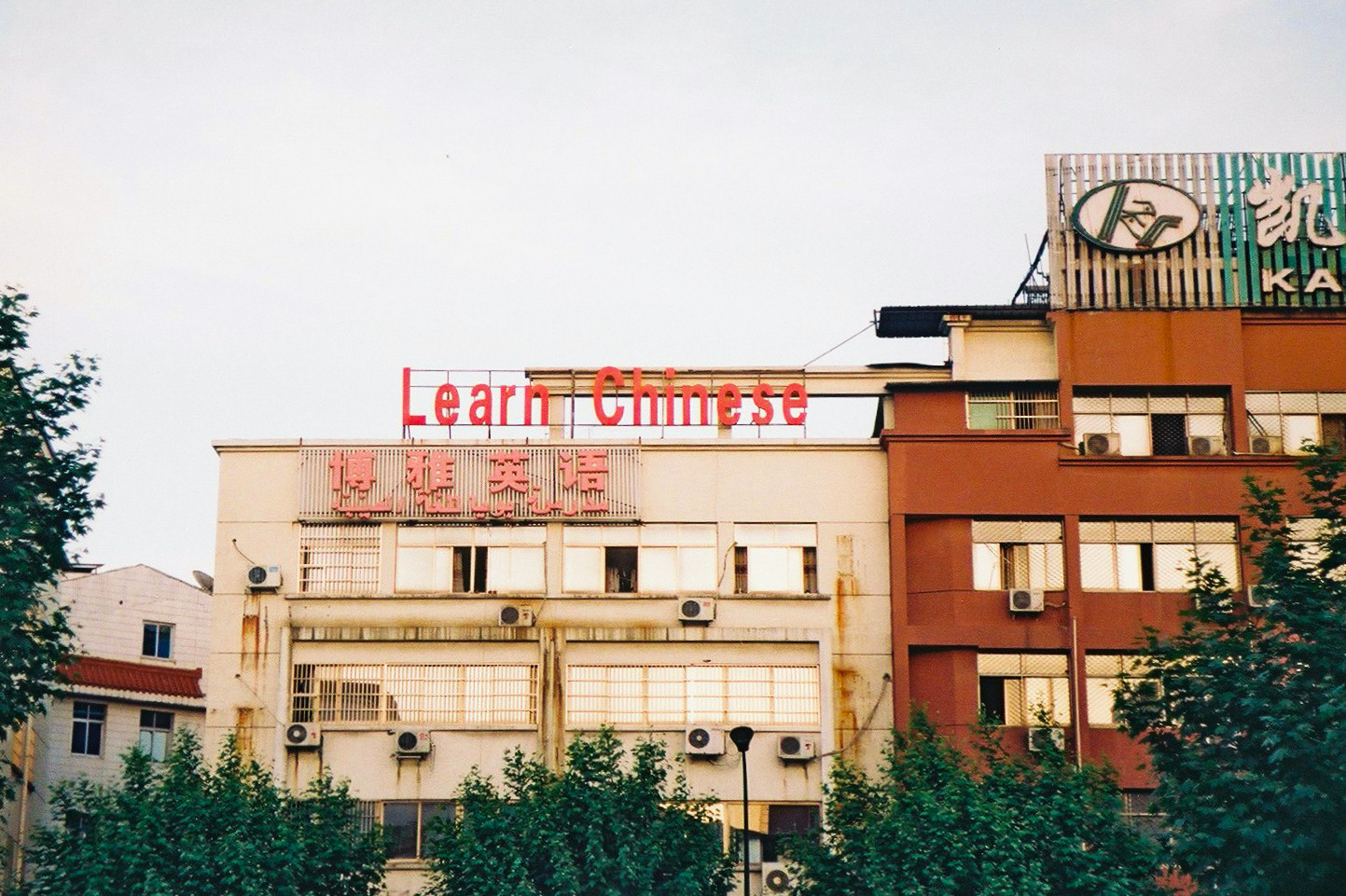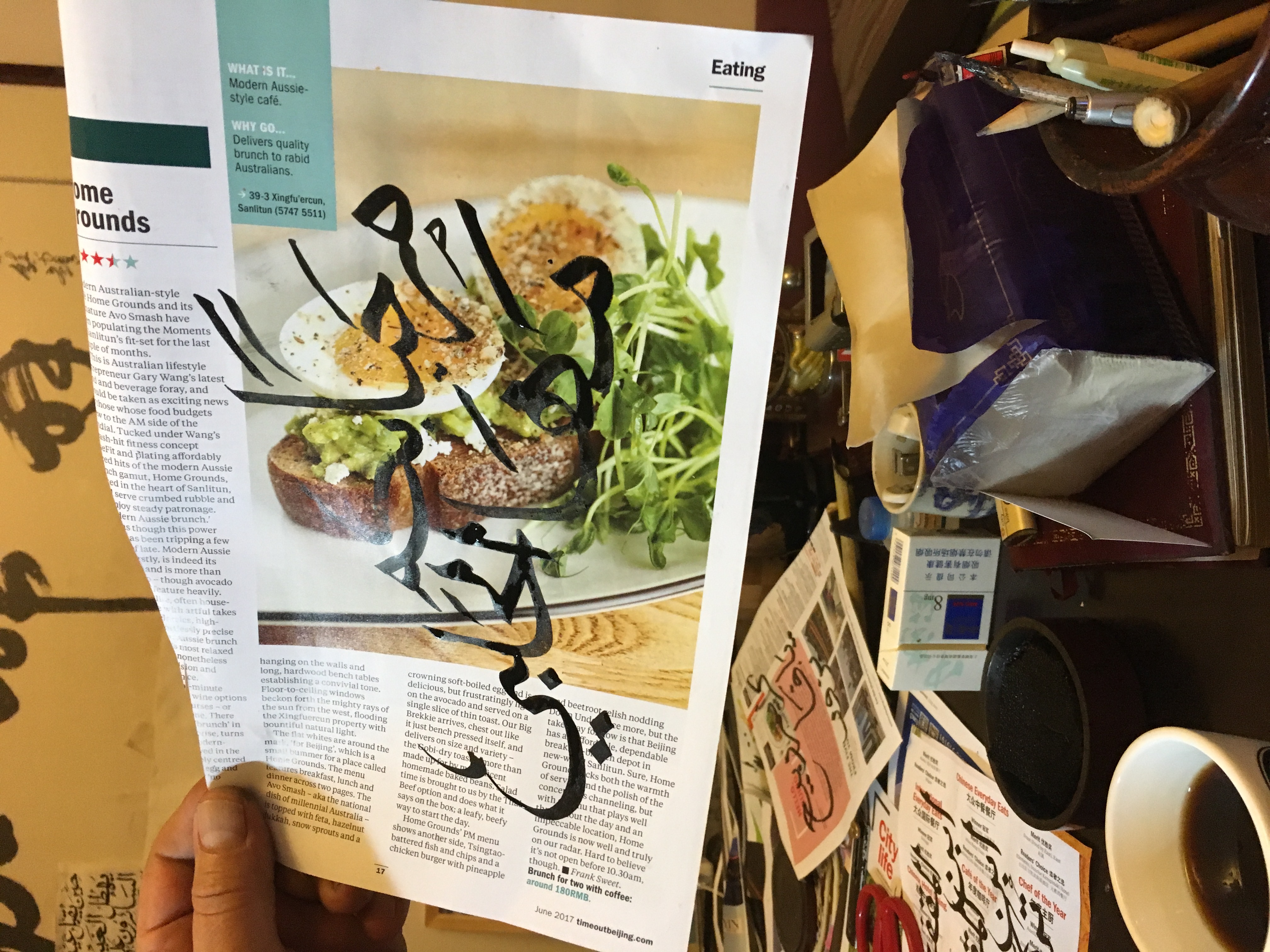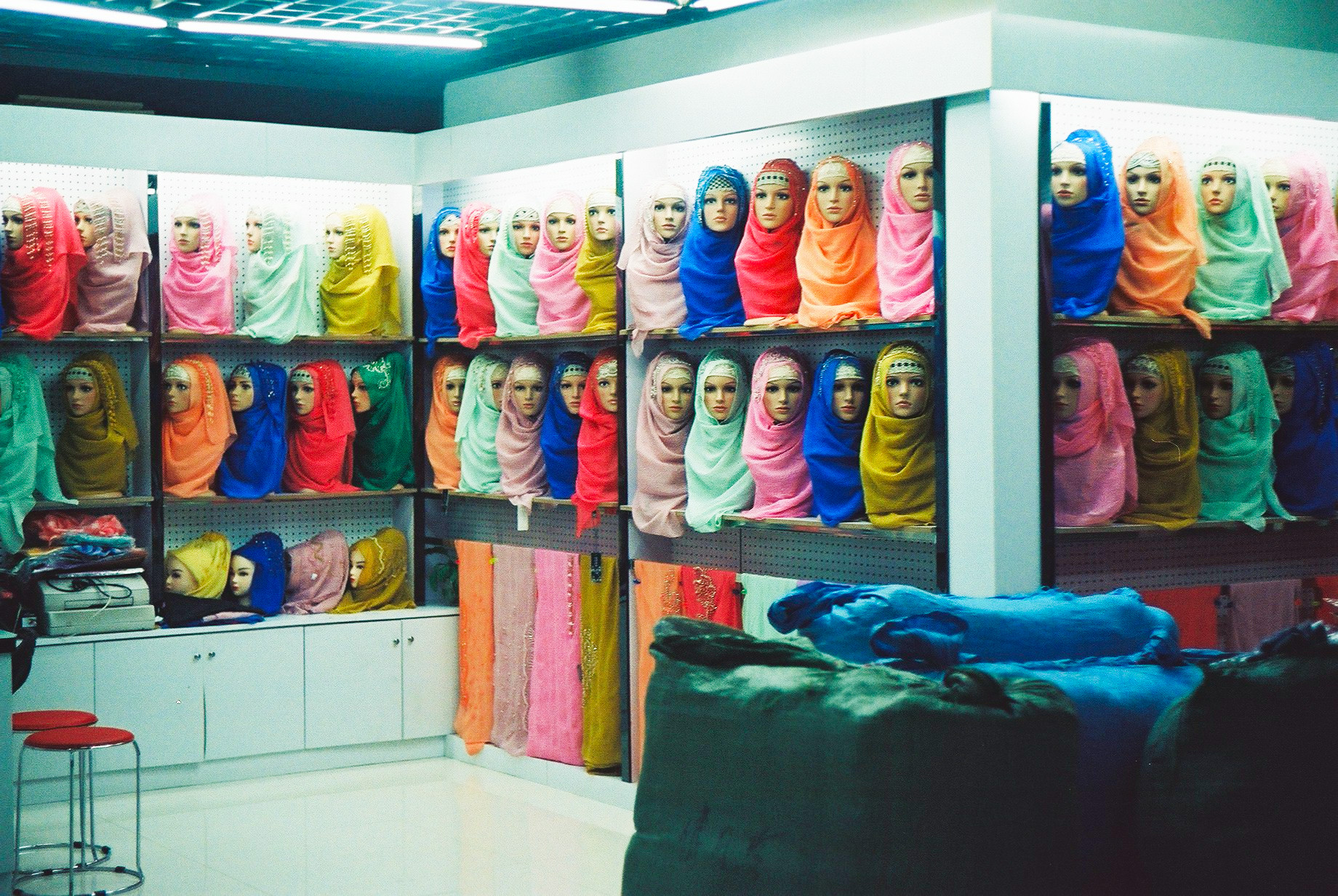PALESTINE IS THROWING A PARTY AND THE WHOLE WORLD IS
INVITED: CAPITAL AND STATE BUILDING IN THE WEST BANK
Available from Duke University Press
In 2008, Palestinian Prime Minister Salam Fayyad invited international investors to the first ever Palestine Investment Conference, which was designed to jumpstart the process of integrating Palestine into the global economy. Or as Fayyad described the conference: Palestine is “throwing a party, and the whole world is invited.” In this book, Kareem Rabie examines how the conference and Fayyad's rhetoric represented a wider shift in economic and political practice in ways that oriented state-scale Palestinian politics toward neoliberal globalization rather than a diplomatic two-state solution. Rabie demonstrates that private firms, international aid organizations, and the Palestinian government in the West Bank focused on large-scale private housing development in an effort toward state-scale economic stability and market building. This approach reflected the belief that a thriving private economy would lead to a free and functioning Palestinian state. Yet, as Rabie contends, these investment-based policies have maintained the status quo of occupation and Palestine's subordinate and suspended political economic relationship with Israel.
“Palestine Is Throwing a Party is a brilliant, carefully researched, and thoughtful book. Kareem Rabie uses the lens of urban planning and development to show us how global processes of unequal capital accumulation, racialized labor and property regimes within Israel/Palestine, and the managerial rule of Palestinian technocrats and capitalists collaborating with Israel all persistently reproduce the violent systems of settler colonial expropriation in Israel/Palestine since 1948.”
“Drawing on his exceptional knowledge and understanding of Palestine along with a considerable amount of original, innovative, and detailed fieldwork, Kareem Rabie presents thought-provoking insights on the question of urbanism in Palestine. This extremely interesting study makes an important contribution.”
“Anthropologist Kareem Rabie turns our gaze to the role of neoliberal capitalism in changing the literal, physical landscape as well as the landscape of future possibilities—or lack thereof—for Palestinian autonomy and self-rule. Palestine Is Throwing a Party exemplifies the best of what ethnography can do: theoretically nuanced analysis derived from the specificities of social life rather than imposed on them.”
"The capitalist concept of Palestine, despite its exclusion, is part of the normalised state-building process, which in turn normalises dealings with Israel. Rabie's book is a pragmatic approach that does not necessarily condone the alteration of Palestinian territory, but takes a dispassionate look at the facts."
"By applying the analytic of settler colonialism without essentializing indigenous identity, and by theorizing the effects of global capitalism on Palestinian class formation, Palestine is Throwing a Party shows the way forward. Though there is nothing optimistic about its portrayal of relations between Palestinians and Israelis as a dark, distorting mirror, its reminder that the two groups are forever shaping one another against a backdrop of steep global inequalities will be crucial for any politics of democratic decolonization."
“A detailed, often dense but intellectually penetrating look at... a significant change in both economic and political strategy” in the West Bank.
“The book’s arguments regarding the free market and urban development complement its most important and provocative scholarly intervention: Occupation, Rabie contends, no longer offers an adequate framework for understanding Palestine. Instead, it contributes to the formation of the present situation by creating a particular orientation toward time and space. In particular, it fosters a sense of temporal deferral, as people see the occupation as an obstacle that must be lifted before life can truly start in the West Bank... He contributes to both activist and scholarly perspectives on Palestine by expanding an occupation-centered analytical perspective to include neoliberal capitalist development. In sum, Palestine Is Throwing a Party and the Whole World Is Invited is a wonderful piece of scholarship and ideal reading for scholars and students interested in contemporary Palestine or the relationship between states and markets.”
“The book elaborates how below the surface known as the Palestinian question, there exists a deeply entrenched class question... Bringing that class question to the fore of academic discussion should be hailed as the greatest achievement of the book.”
“This book is about Palestine, specifically the West Bank, the Ramallah bubble, and the ways in which national politics has collapsed into narrower relationships. But, the questions raised and the practices described in the study go much further, beyond the scope of this particular case. Palestine Is Throwing a Party can contribute to a wide range of literatures and, as mentioned previously, across disciplines. It should prove crucial reading to all those interested in the future of Palestine, modern manifestations of the state as a ‘node in the global political economy’ (19), as well as political economy approaches more broadly.”
“...his ability to attend to multiple manifestations of social relations becomes quite novel. His methodological approach, what he calls a materialist ethnography, allows for these subtle interventions. This kind of qualitative political economic approach transgresses many disciplinary boundaries and categorizations including class, law, land, and sovereignty to produce processional and contextualized social relations which are constantly in creation and contested as they are materialized.”
“Kareem Rabie’s brilliant new book addresses the conundrums of Israeli settler colonialism and Palestinian state-building in the West Bank from ethnographically and theoretically incisive perspectives... Rabie elaborates this analysis with a focus on the development of a new Palestinian town, Rawabi, located north of Ramallah (the Palestinian Authority’s capital), and a Marxist approach to class, capital, and the production of place and space pioneered by geographers David Harvey and Neil Smith. Rabie highlights complex and multilayered forms of agency among the capitalist elite; rural, often impoverished, village dwellers; and, in particular, a growing Palestinian middle class that is simultaneously being created by the movement of capital in the West Bank while also comprising the market for new housing in the massive Rawabi project.”
“Rabie carefully disentangles the claims and political- economic goals of stability and freedom. This complicates the picture but is essential because it helps us understand what is going on in Palestine today and contributes to a discussion on the contours of a political future not confined to the nation-state form. In doing so, Rabie offers ways to think otherwise and imagine emancipatory futures.”
“If you're wondering how the Palestinian Authority has been actively complicit in the perpetuation of Israeli occupation, this book is a great place to start. Meticulously researched and engagingly written, Rabie narrates the PA's full-scale privatization of the West Bank, courting investment rather than national autonomy, and showing how the production of a neoliberal state-form is an ongoing process. This is political anthropology at its best.”
“This fascinating case study is a refreshing and necessary intervention—one that will hopefully trigger more research on the political-economic conditions in Palestine.”
“It reads a bit like an Agatha Christie novel.”
In 2008, Palestinian Prime Minister Salam Fayyad invited international investors to the first ever Palestine Investment Conference, which was designed to jumpstart the process of integrating Palestine into the global economy. Or as Fayyad described the conference: Palestine is “throwing a party, and the whole world is invited.” In this book, Kareem Rabie examines how the conference and Fayyad's rhetoric represented a wider shift in economic and political practice in ways that oriented state-scale Palestinian politics toward neoliberal globalization rather than a diplomatic two-state solution. Rabie demonstrates that private firms, international aid organizations, and the Palestinian government in the West Bank focused on large-scale private housing development in an effort toward state-scale economic stability and market building. This approach reflected the belief that a thriving private economy would lead to a free and functioning Palestinian state. Yet, as Rabie contends, these investment-based policies have maintained the status quo of occupation and Palestine's subordinate and suspended political economic relationship with Israel.
“Palestine Is Throwing a Party is a brilliant, carefully researched, and thoughtful book. Kareem Rabie uses the lens of urban planning and development to show us how global processes of unequal capital accumulation, racialized labor and property regimes within Israel/Palestine, and the managerial rule of Palestinian technocrats and capitalists collaborating with Israel all persistently reproduce the violent systems of settler colonial expropriation in Israel/Palestine since 1948.”
— Laleh Khalili, author of Sinews of War and Trade: Shipping and Capitalism in the Arabian Peninsula
“Drawing on his exceptional knowledge and understanding of Palestine along with a considerable amount of original, innovative, and detailed fieldwork, Kareem Rabie presents thought-provoking insights on the question of urbanism in Palestine. This extremely interesting study makes an important contribution.”
— Adam Hanieh, author of Money, Markets, and Monarchies: The Gulf Cooperation Council and the Political Economy of the Contemporary Middle East
“Anthropologist Kareem Rabie turns our gaze to the role of neoliberal capitalism in changing the literal, physical landscape as well as the landscape of future possibilities—or lack thereof—for Palestinian autonomy and self-rule. Palestine Is Throwing a Party exemplifies the best of what ethnography can do: theoretically nuanced analysis derived from the specificities of social life rather than imposed on them.”
— Lisa Rofel, Journal of Palestine Studies
"The capitalist concept of Palestine, despite its exclusion, is part of the normalised state-building process, which in turn normalises dealings with Israel. Rabie's book is a pragmatic approach that does not necessarily condone the alteration of Palestinian territory, but takes a dispassionate look at the facts."
— Ramona Wadi, Middle East Monitor
"By applying the analytic of settler colonialism without essentializing indigenous identity, and by theorizing the effects of global capitalism on Palestinian class formation, Palestine is Throwing a Party shows the way forward. Though there is nothing optimistic about its portrayal of relations between Palestinians and Israelis as a dark, distorting mirror, its reminder that the two groups are forever shaping one another against a backdrop of steep global inequalities will be crucial for any politics of democratic decolonization."
— Matan Kaminer, +972 Magazine (also available in Hebrew)
“A detailed, often dense but intellectually penetrating look at... a significant change in both economic and political strategy” in the West Bank.
— Ian Black, Tel Aviv Review of Books
“The book’s arguments regarding the free market and urban development complement its most important and provocative scholarly intervention: Occupation, Rabie contends, no longer offers an adequate framework for understanding Palestine. Instead, it contributes to the formation of the present situation by creating a particular orientation toward time and space. In particular, it fosters a sense of temporal deferral, as people see the occupation as an obstacle that must be lifted before life can truly start in the West Bank... He contributes to both activist and scholarly perspectives on Palestine by expanding an occupation-centered analytical perspective to include neoliberal capitalist development. In sum, Palestine Is Throwing a Party and the Whole World Is Invited is a wonderful piece of scholarship and ideal reading for scholars and students interested in contemporary Palestine or the relationship between states and markets.”
— Nazli Azergun, Economic Anthropology
“The book elaborates how below the surface known as the Palestinian question, there exists a deeply entrenched class question... Bringing that class question to the fore of academic discussion should be hailed as the greatest achievement of the book.”
— Fouad Mami, European Planning Studies
“This book is about Palestine, specifically the West Bank, the Ramallah bubble, and the ways in which national politics has collapsed into narrower relationships. But, the questions raised and the practices described in the study go much further, beyond the scope of this particular case. Palestine Is Throwing a Party can contribute to a wide range of literatures and, as mentioned previously, across disciplines. It should prove crucial reading to all those interested in the future of Palestine, modern manifestations of the state as a ‘node in the global political economy’ (19), as well as political economy approaches more broadly.”
— Dana El-Kurd, International Journal of Middle East Studies
“...his ability to attend to multiple manifestations of social relations becomes quite novel. His methodological approach, what he calls a materialist ethnography, allows for these subtle interventions. This kind of qualitative political economic approach transgresses many disciplinary boundaries and categorizations including class, law, land, and sovereignty to produce processional and contextualized social relations which are constantly in creation and contested as they are materialized.”
— Justin Holmes, New Global Studies
“Kareem Rabie’s brilliant new book addresses the conundrums of Israeli settler colonialism and Palestinian state-building in the West Bank from ethnographically and theoretically incisive perspectives... Rabie elaborates this analysis with a focus on the development of a new Palestinian town, Rawabi, located north of Ramallah (the Palestinian Authority’s capital), and a Marxist approach to class, capital, and the production of place and space pioneered by geographers David Harvey and Neil Smith. Rabie highlights complex and multilayered forms of agency among the capitalist elite; rural, often impoverished, village dwellers; and, in particular, a growing Palestinian middle class that is simultaneously being created by the movement of capital in the West Bank while also comprising the market for new housing in the massive Rawabi project.”
— Les W. Field, Journal of Anthropological Research
“Rabie carefully disentangles the claims and political- economic goals of stability and freedom. This complicates the picture but is essential because it helps us understand what is going on in Palestine today and contributes to a discussion on the contours of a political future not confined to the nation-state form. In doing so, Rabie offers ways to think otherwise and imagine emancipatory futures.”
— Timothy Seidel, American Anthropologist
“If you're wondering how the Palestinian Authority has been actively complicit in the perpetuation of Israeli occupation, this book is a great place to start. Meticulously researched and engagingly written, Rabie narrates the PA's full-scale privatization of the West Bank, courting investment rather than national autonomy, and showing how the production of a neoliberal state-form is an ongoing process. This is political anthropology at its best.”
— Zachary Levenson, Spectre
“This fascinating case study is a refreshing and necessary intervention—one that will hopefully trigger more research on the political-economic conditions in Palestine.”
— Eman Abdelhadi, Critical Inquiry
“It reads a bit like an Agatha Christie novel.”
— David Harvey
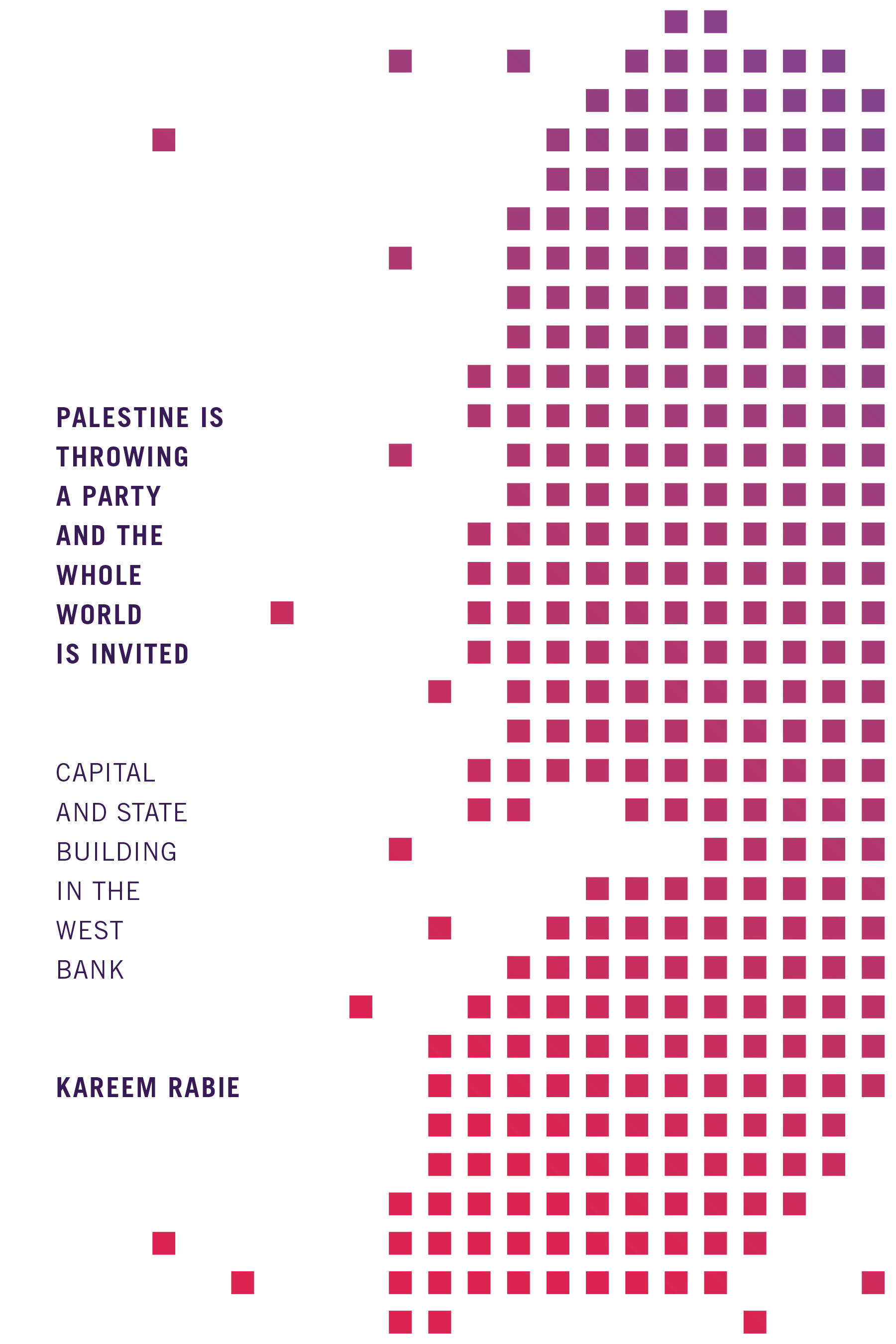
RECENT WRITING
Everywhere in the World there is a Chinatown, in China there is a Khaliltown
Their Borders, Our World, edited by Mahdi Sabbagh
Haymarket Press, 2024
Combined and Uneven Catastrophe, an interview with Joshua Craze
The Baffler, 21 November 2023
On Israel’s Settler Democratic Reform, Nicola Perugini and Kareem Rabie
Institute for Palestine Studies, 12 September 2023
Planning, State Building, and the Days After in Palestine
Focaal Journal of Global and Historical Anthropology, 2022
Housing and Generality in Palestine Studies
Jerusalem Quarterly 83, Autumn 2020
Promissory Note, with Mike Crane
Triple Canopy 25, Resentment, 2018-2019
Remaking Ramallah
New Left Review 111, May-June 2018
UPCOMING EVENTS
5 February 2026
Stanford University Program on Urban Studies
March 2026
Fordham College, O’Connell Initiative for the Global History of Capitalism
6 April 2026
University of Chicago, Department of Anthropology
April 2026
American Association of Geographers Annual Meeting
San Francisco, California
5 November 2026
16th Annual Robert Fitch Memorial Lecture
LaGuardia Community College, NYC
MEDIA AND PAST EVENTS
16 January 2026
UIC, College of Urban Planning and Public Affairs
19-23 November 2025
American Anthropological Association Annual Meeting
New Orleans, Louisiana
8 October 2025
Finnish Institute in the Middle East
3 April 2025
Researching Israel’s Distribution of Stability and Violence
UCLA Department of Anthropology
10 April 2025
Everywhere in the World there is a Chinatown, in China there is a Khaliltown: on Palestine, China, and the Circulations in Between
UIC Institute for the Humanities
15 October 2024
State-Building in the Shadow of Genocide: The West Bank and Israel’s Spatial Distribution of Violence and Stability
University of Washington Department of History and Harry Bridges Center for Labor Studies
12 August 2024
State Building, Development Ideology, and Debt in the West Bank
Death Panel Podcast
6-8 March 2024
City Debates Conference
American University of Beirut
21 February 2024
Shifting Priorities
UIC College of Urban Planning and Public Affairs
29 January 2024
Roundtable: The Political Economy of Palestine with Sarah Jaffe and Laleh Khalili
Macrodose Podcast
7 November 2023
Johns Hopkins University Department of Anthropology
2 February 2023
Northwestern University Department of Anthropology
26 August 2022
Interview with Adam Bobeck
New Books Network Podcast
21-22 March 2022
“National Planning and the Days After: Housing and the State Process in Palestine”
Contemporary Urbanism and Arab Cities: Between Challenges and Future Prospects
Birzeit University Department of Architecture, TU Berlin Habitat Unit, GIZ Palestine
11 March 2022
“Shifting Priorities, and how Private Development is Transforming Aid, Governance, and Daily Life in the West Bank"
Cornell University Department of Global Development
24 January 2022
Book talk with Wassim Ghantous
Columbia University Center for Palestine Studies
14 January 2022
عن حفلة سوق العقار الفلسطينيّة | حوار مع كريم ربيع
Interview with Anas Ibrahim
Arab48
2 December 2021
In conversation with Nathan Brown
George Washington University Institute for Middle East Studies
24 November 2021
GTA Invites: Palestine is Throwing a Party and the Whole World is Invited
ETH Zurich Institute for the History and Theory of Architecture (GTA)
11 November 2021
Book launch with Gökçe Günel, Lucy Garbett, Deen Sharp, and Sara Salem
LSE Department of Sociology
5 November 2021
How Neoliberal Capitalism Fortifies Israel’s Occupation of Palestine
Interview with Rania Khalek
Breakthrough News
14 October 2021
Palestinian State-Building through Privatized City Planning
Interview with Nadim Bawalsa
Al-Shabaka
6 October 2021
Immobilier, investissements, développement: quand la Palestine est devenue «bankable»
Interview with Stéphanie Khouri
L’Orient Le Jour
23 September 2021
A conversation with Mezna Qato and David Harvey
CUNY Center for Place, Culture, and Politics
15 July 2021
Interview with Doug Henwood
“Behind the News”
KPFA 94.1 FM, Berkeley
5 June 2021
Keynote conversation with Sherene Seikaly
2021 Political Economy Summer Institute
Arab Studies Institute’s Political Economy Project
PALESTINE/CHINA
Building on preliminary fieldwork undertaken in 2015 and 2017, Kareem’s current writing focuses on the complex social, economic, and imaginative geographies between the West Bank and China. This work is centered on the circulation in between, and the routes and travels of people, capital, and commodities.
